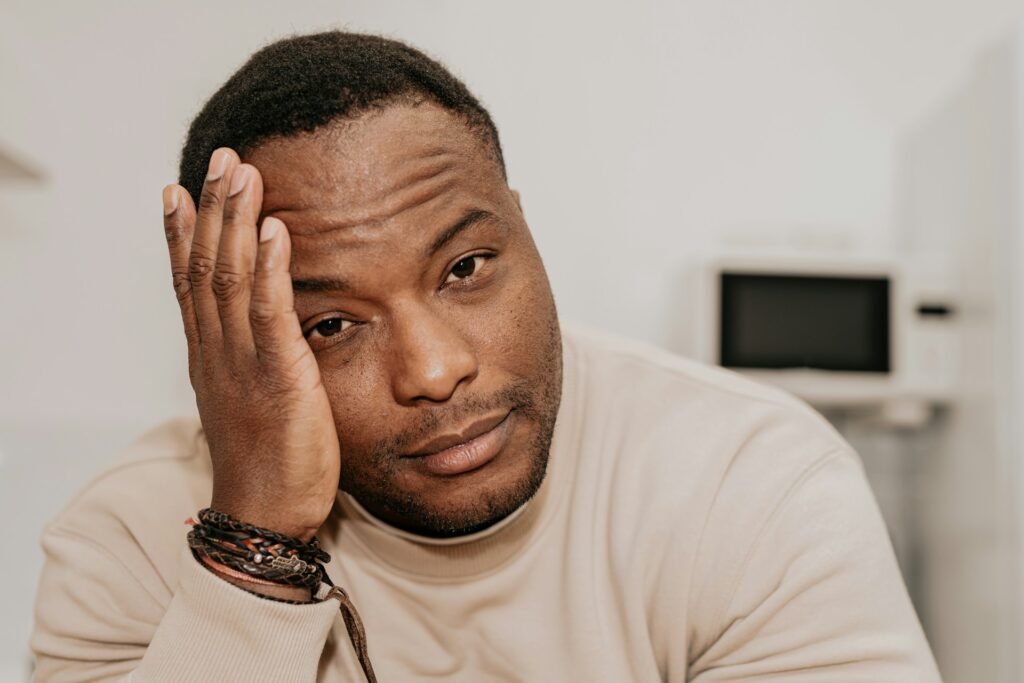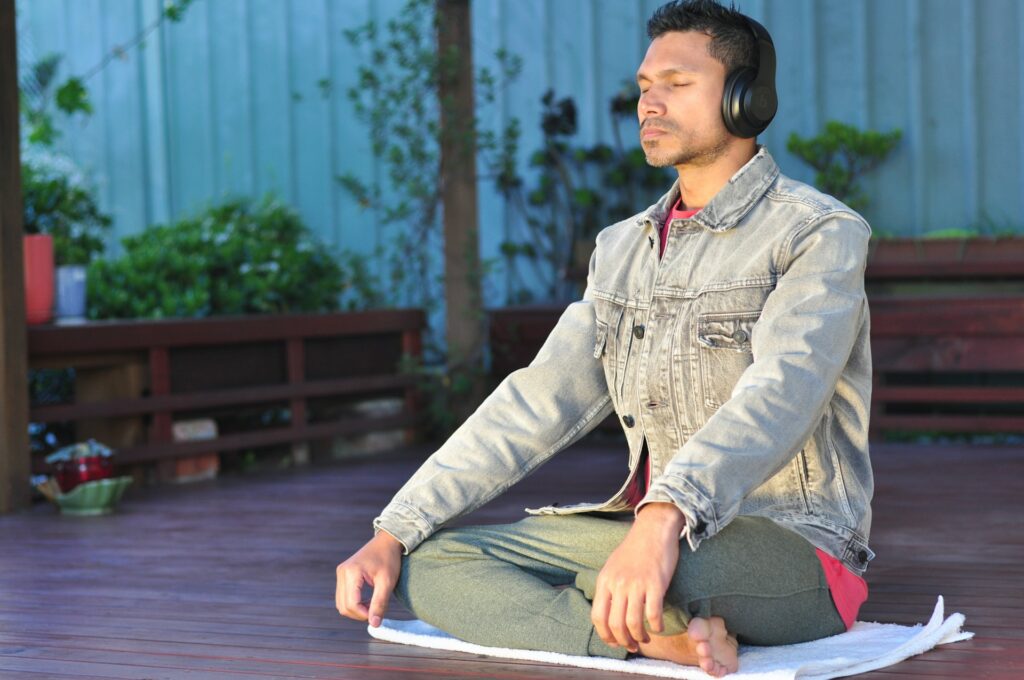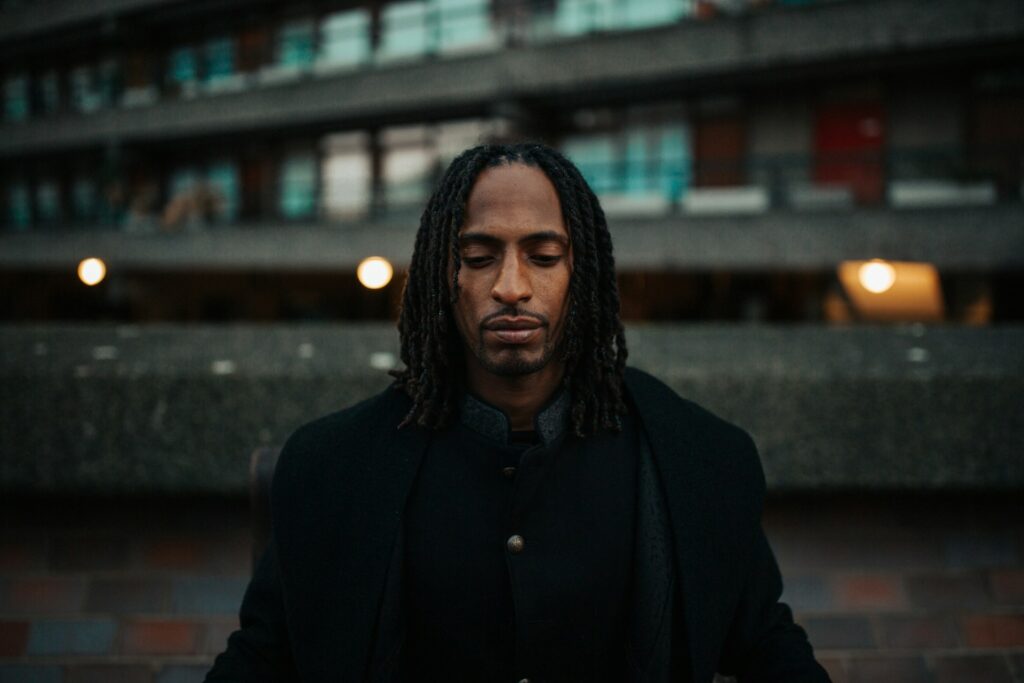There are plenty of things men are taught to be—strong, reliable, stoic.

However, there are not nearly enough lessons that speak to their softness, their needs, or the invisible weight they often carry. A lot goes unsaid. Whether it’s because of social pressure, generational patterns, or just a lack of space to open up, too many men go through life without hearing what they truly need to. These are reminders that should be said more often, and actually meant.
1. You’re allowed to feel everything.

Sadness, fear, tenderness, doubt—none of it makes you weak. Emotions don’t need to be explained or justified. You’re allowed to feel them fully without turning them into a joke or brushing them off. It’s not less masculine to feel, it’s human. And the more you let yourself feel without shame, the more depth, resilience, and real connection you’ll bring into your life.
2. You don’t always have to be the strong one.

Being dependable doesn’t mean you can’t fall apart sometimes. You’re not failing anyone by admitting you’re tired, lost, or struggling. Carrying it all in silence isn’t noble, it’s exhausting. You’re allowed to lean on other people. Strength can look like softness. It can sound like “I need help.” And the people who care about you want to be there—you don’t have to hold it all alone.
3. Your worth isn’t based on your pay cheque.

Money might be loud in this world, but it doesn’t define your character, your heart, or the way people feel in your presence. You’re more than what you earn or provide materially. What you bring to the table includes your humour, your presence, your values, and how you treat other people. Your value doesn’t fluctuate with your income, and it never should.
4. You deserve rest, not just productivity.

Rest isn’t earned, it’s needed. You don’t have to burn yourself out just to prove you’re doing enough. You’re allowed to pause, do nothing, and care for yourself without guilt. Constant output isn’t a badge of honour if it’s draining you. You’re not a machine. You’re a human being who needs recovery just as much as progress.
5. You’re still growing, even now.

It doesn’t matter how old you are—growth doesn’t stop. You’re allowed to change your mind, change directions, admit mistakes, and want more from life. None of that makes you less solid. It makes you alive. You don’t need to have it all figured out. Curiosity, humility, and self-reflection will always serve you more than rigid certainty ever could.
6. You’re not too much when you care deeply.

If you love hard, think deeply, or feel things more than you let on, that’s not something to hide. Caring isn’t overbearing. Sensitivity isn’t a flaw. It’s a sign that you’re in touch with something real. There’s strength in your depth. Letting people see it doesn’t make you fragile—it makes you trustworthy, honest, and emotionally grounded.
7. You’re allowed to set boundaries.

You don’t have to say yes to everything just to keep the peace. Protecting your time, energy, and mental wellbeing doesn’t make you selfish—it makes you self-aware. It’s okay to disappoint people if the alternative is abandoning yourself. You’re allowed to have limits, even with people you love. Especially with people you love.
8. You deserve kindness, even from yourself.

The way you speak to yourself matters. If your inner voice is constantly harsh or dismissive, it’s not just exhausting—it’s unfair. You wouldn’t speak to someone you care about that way, so why accept it from yourself? Self-respect includes self-compassion. You don’t need to bully yourself into improvement. You’ll get further with grace than with shame.
9. You don’t have to fit someone else’s idea of masculinity.

Masculinity isn’t one-size-fits-all. You don’t have to be stoic, dominant, or “unemotional” to be valid. You get to define what manhood looks like for you—and it can include gentleness, vulnerability, creativity, and softness. You’re not failing at being a man if you’re not ticking outdated boxes. You’re just evolving, and that’s something to be proud of.
10. You’re more loved than you realise.

Men don’t always hear it directly, but there are people who care about you more than they show. Sometimes they assume you already know. Sometimes they don’t know how to say it, but the love is there—in the way people turn to you, miss you, listen to you, or light up when you walk in. You matter. Even when it’s not loudly spoken, your presence has impact.
11. It’s okay if you don’t always feel okay.

Rough days don’t mean you’re broken. Feeling numb, overwhelmed, or unsure isn’t something you need to hide. Being human means having emotional seasons. You’re not weak for moving through them. What matters is that you keep showing up, even imperfectly. If you’re having a hard time, that’s not a flaw. It’s a signal that something inside you needs attention, not avoidance.
12. You have nothing to prove to anyone.

You don’t need to be the toughest, the most successful, or the smartest person in the room. You’re not here to constantly perform your worth or convince people you matter. You already do. Just by being here, learning, trying, and caring. You’re not a walking résumé or a role to be played. You’re a person, and that’s more than enough.
13. Your mental health matters.

It’s not weak to struggle. It’s not dramatic to ask for help. Your mental health is just as real and important as your physical health—and ignoring it doesn’t make it go away. Asking for support takes courage. Talking about how you’re doing emotionally isn’t a burden—it’s a form of responsibility. For yourself, and for the people who care about you.
14. You’re allowed to be proud of who you are.

You don’t need permission to feel good about yourself. You can acknowledge your growth, your effort, and the way you show up. That pride doesn’t need to be loud to be real. Being proud doesn’t mean being arrogant. It means recognising your own value—and choosing to stop shrinking just to make anyone else comfortable.
15. You don’t need to do everything alone.

Asking for help, reaching out, leaning on someone—it’s not a failure. It’s a strength. Doing things solo all the time isn’t sustainable, and it’s not the only way to be capable. You deserve connection, support, and understanding just as much as anyone else. Letting people in doesn’t make you less of a man. It just makes you human.
16. You’re allowed to grow into someone softer.

You’re not stuck with who you were ten years ago—or even last year. It’s okay to let go of armour that doesn’t fit anymore. Softer doesn’t mean weaker. It means more in tune, more aware, more whole. There’s strength in being gentle, patient, or kind. There’s courage in growing quieter, steadier, more intentional. If that’s where you’re heading, keep going. It’s not less—it’s more.


